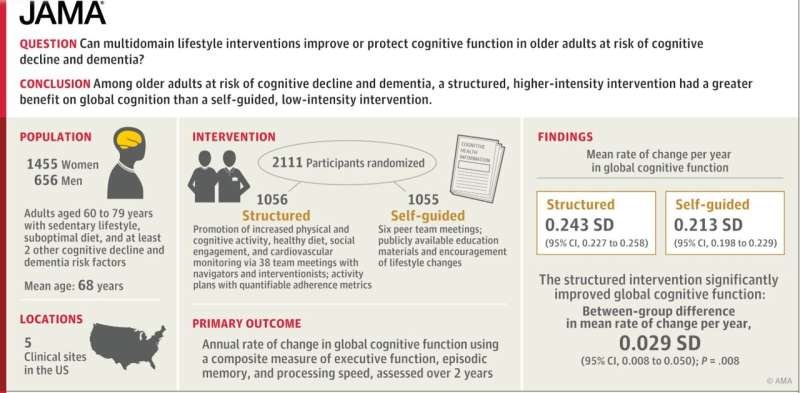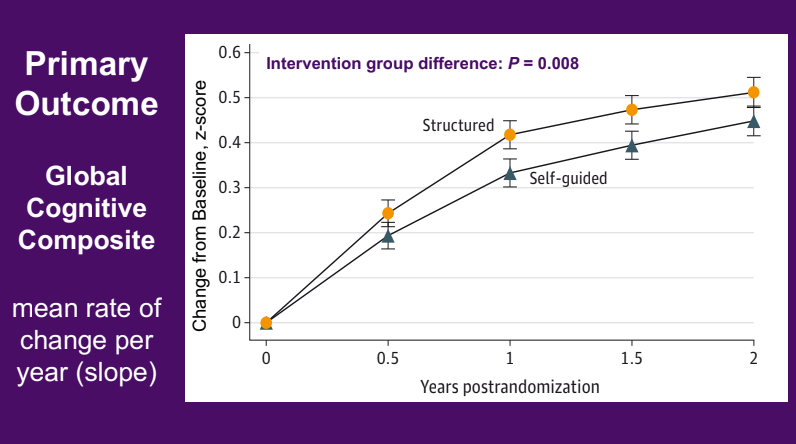
Lifestyle changes can significantly improve cognition in older adults at risk of cognitive decline, according to landmark research into how exercise, diet and other lifestyle interventions affect the progression of cognitive diseases like Alzheimer’s and dementia.
The researchers presented the findings of the Alzheimer’s Association’s U.S. Study to Protect Brain Health Through Intervention to Reduce Risk (U.S. POINTER) today at the Alzheimer’s Association International Conference in Toronto. The findings were also published in the Journal of the American Medical Association (JAMA).
Jeffrey Katula, McDonough Family Faculty Fellow in the Wake Forest Department of Health and Exercise Science, worked to design and implement the intervention with the study’s principal investigator Laura D. Baker, Ph.D., Professor of Gerontology and Geriatrics, and Internal Medicine at Wake Forest University School of Medicine and Advocate Health.
The two-year, multi-site randomized clinical trial tested two lifestyle interventions among a diverse group of 2,111 older adults across five U.S. academic centers and health care systems. Both structured and self-guided lifestyle interventions led to cognitive improvements, with the structured program showing greater gains in global cognition.
“We designed the interventions to target four aspects of lifestyle: physical activity, diet, cognitive challenge, and health monitoring,” Katula said. “We sought to induce long-term lifestyle change and partnered with community organizations to ensure participants could make these changes independent of our study. We asked a lot of our participants…and they did a lot for two years. The positive results of the study reflect the effort and dedication of our participants.”
Katula co-chaired the Intervention Oversight Committee.
“Our findings have tremendous implications for older adults: It is never too late to make lifestyle changes that can have measurable impact on one’s brain health,” – Jeffrey Katula
“It was extremely rewarding working with all our participants, intervention staff, and Alzheimer’s Association navigators and Chapter Leads in conducting this study,” he said. “The experience has been transformative for not only our participants, but also for all of us working on the study.”
Cognitive benefits were consistent across age, sex and ethnicity.
“The potential to improve cognition with fewer resources and lower participant burden is compelling. It highlights that while not everyone has the same access or ability to adhere to more intensive behavior interventions, even modest changes may protect the brain,” Baker said in the announcement from the Alzheimer’s Association.
Read the full release from the Alzheimer’s Association and the release from the Wake Forest School of Medicine.
Categories: Research & Discovery






